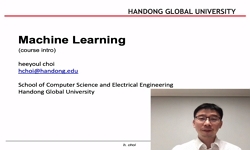Recently, mobile apps that utilize AI technologies are increasing. In the personal mobile environment, performance degradation may occur during the training phase of large AI workload due to limitations in memory capacity. In this paper, we extract me...
http://chineseinput.net/에서 pinyin(병음)방식으로 중국어를 변환할 수 있습니다.
변환된 중국어를 복사하여 사용하시면 됩니다.
- 中文 을 입력하시려면 zhongwen을 입력하시고 space를누르시면됩니다.
- 北京 을 입력하시려면 beijing을 입력하시고 space를 누르시면 됩니다.

개인용 모바일 환경의 AI 워크로드 수행을 위한 메모리 참조 분석 및 시스템 설계 방안 = Implications for Memory Reference Analysis and System Design to Execute AI Workloads in Personal Mobile Environments
한글로보기https://www.riss.kr/link?id=A108966608
- 저자
- 발행기관
- 학술지명
- 권호사항
-
발행연도
2024
-
작성언어
Korean
- 주제어
-
등재정보
KCI등재
-
자료형태
학술저널
-
수록면
31-36(6쪽)
- DOI식별코드
- 제공처
-
0
상세조회 -
0
다운로드
부가정보
다국어 초록 (Multilingual Abstract)
Recently, mobile apps that utilize AI technologies are increasing. In the personal mobile environment, performance degradation may occur during the training phase of large AI workload due to limitations in memory capacity. In this paper, we extract memory reference traces of AI workloads and analyze their characteristics. From this analysis, we observe that AI workloads can cause frequent storage access due to weak temporal locality and irregular popularity bias during memory write operations, which can degrade the performance of mobile devices. Based on this observation, we discuss ways to efficiently manage memory write operations of AI workloads using persistent memory-based swap devices. Through simulation experiments, we show that the system architecture proposed in this paper can improve the I/O time of mobile systems by more than 80%.
동일학술지(권/호) 다른 논문
-
IoT 기반 도시철도 재난 예지 및 경보 시스템 아키텍처 설계
- 한국인터넷방송통신학회
- 조응영
- 2024
- KCI등재
-
- 한국인터넷방송통신학회
- 김영완
- 2024
- KCI등재
-
지능형 엣지 컴퓨팅 기기를 위한 온디바이스 AI 비전 모델의 경량화 방식 분석
- 한국인터넷방송통신학회
- 주혜현
- 2024
- KCI등재
-
- 한국인터넷방송통신학회
- 김강희
- 2024
- KCI등재




 ScienceON
ScienceON eArticle
eArticle






